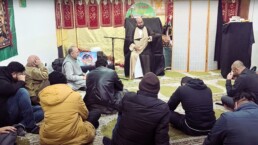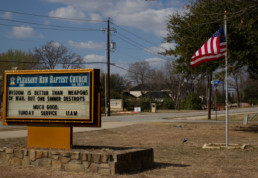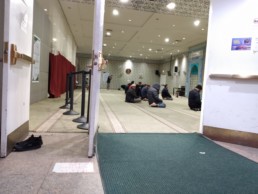Why Songs of Zainab Moved This Shia Congregation in Brooklyn to Tears
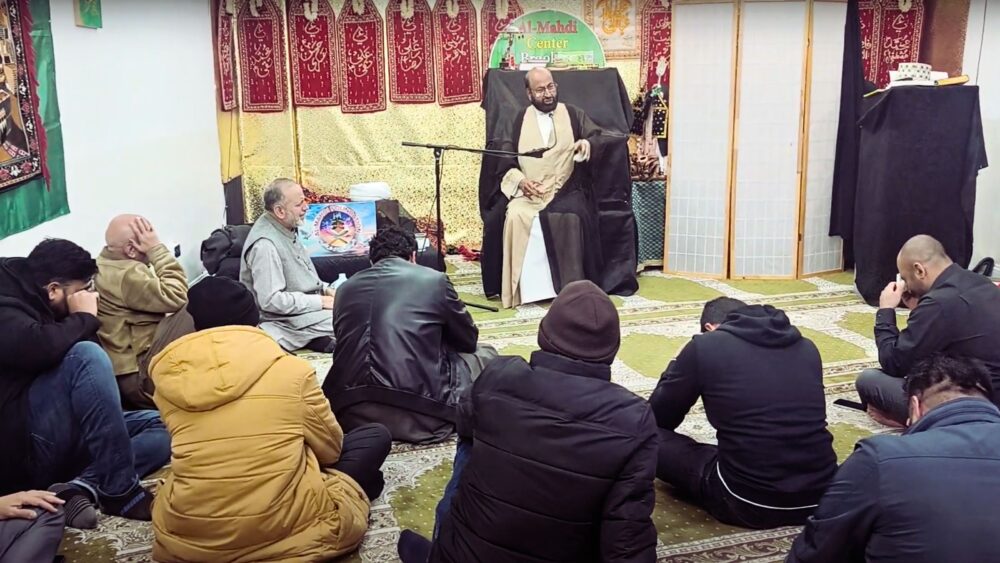
NEW YORK - A couple dozen grown men are seated on the floor, sobbing in unison.
It’s a rainy Sunday evening on Coney Island Avenue, in a Brooklyn neighborhood better known as Little Pakistan. A small crowd has gathered in the prayer hall of the Al-Mahdi Foundation’s masjid, a Shi’a mosque.
There are songs being sung, and poems recited. Each verse pays homage to Zainab bint Ali, the granddaughter of Prophet Muhammad.
The previous day, the 27th of January 2024, was also the 15th of Rajab 1445, as per the Hijri or Islamic calendar. It was the day that Zainab is said to have passed away, close to 14 centuries ago. The Shia congregation in Brooklyn is mourning Zainab by retelling stories of her suffering and bravery.
“Adab se kahiye, salaam Zainab (say it with respect, salutations to Zainab),” sings Rashid Zaidi, a worshiper at the mosque.
Prior to her death, Zainab had been taken captive by the forces of Yazid, the second chief of the Umayyad Caliphate. This was after the Battle of Karbala, in which Zainab’s brother Hussain and several of her relatives are said to have been killed by the forces of Yazid.
Zainab is remembered by the gathering for her resolve and resistance in the face of oppression. “Quran agar Hussain, tafsir hai Zainab (If Hussain is the Quran, then Zainab is its interpretation)", recites a worshiper.
Shi’a Muslims, who comprise a minority within Islam, are also a minority among the Muslim population in New York City. The majority of mosques in the city belong to the Sunnis. The holy day commemorating Zainab’s death, however, holds significance for Shi’a and not Sunni practitioners, and the Al-Mahdi masjid in Brooklyn is one of the few places in the city where such a commemorative event is being held.
As Zainab’s hardships in captivity are recounted, many of the members in the congregation cannot bear to look. They cup their faces in their hands in grief. An elderly man crinkles his tearful eyes and slaps his thighs. Next to him, 65-year-old Hasan Raza beats his chest lightly. He laments, “People slayed the Prophet’s family just for the lust of power. When we remember that, we cry.”
Syed Basit Naqvi, a 43-year-old cab driver, explains his outpouring of emotions during the commemoration, “Zainab’s captors had tried to humiliate her by walking her through the streets and snatching her hijab away from her. If I close my eyes, I feel like I'm looking at those things happening in front of me.” He adds, “You can feel it happening and you feel helpless.”
Channeling The Grief
“You relate to their grief, and the grief gives us a sense of belonging,” says Hussain Raza, a 36-year-old software developer from Pennsylvania, who attended the event in Brooklyn on Sunday. He adds, “Isn't that what everyone is looking for in the world - a sense of belonging?”
Raza continues, “When you listen, it goes in from one ear and then, I'm a software person so I'd say it goes into a loop, and then it goes to a different function in the body, your heart, your brain, and the emotion hits…and you tear up. It happens in milliseconds.”
Naqvi says, “The grief helps me - when you associate yourself with victims like them (Zainab and those alongside her), you tend to be more sympathetic with other people. The main purpose is so that you don't become the oppressors.”
He says it makes him want to help other people. “The grief softens your heart when somebody is in pain. Because when you're grieving people who have been killed like this, you cannot be cruel to anybody else.”
A young boy comes to remind Naqvi that they have to get going. It’s his nephew.
As Naqvi proceeds to leave the mosque, he remarks, “I don't feel angry on hearing the story. I feel that this thing happened in the past, but it shouldn't happen again. Never again.”
How the Synagogue Hostage Crisis Changed the DNA of Colleyville, Texas
As Congregation Beth Israel reopens, interfaith efforts deepen and houses of worship intensify security measures, adapting to “a more violent world.”
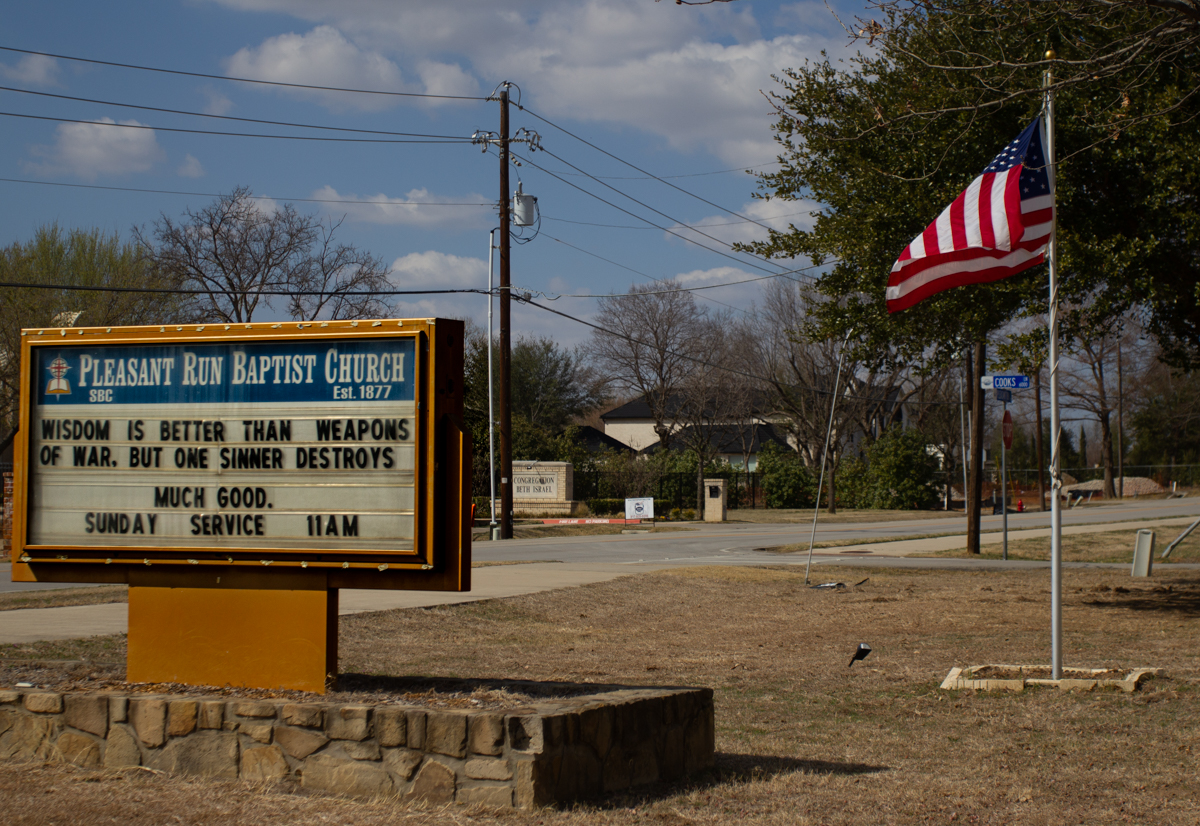
COLLEYVILLE, Texas – On Jan. 15, Colleyville, a small suburb just miles from the Dallas-Fort Worth Airport, was thrust into the national spotlight as a gunman, armed with a pistol, took four people hostage for 11 hours in the Congregation Beth Israel synagogue. All four hostages escaped unharmed before the suspect was shot, authorities said. The FBI labeled the incident as a terrorist act and hate crime.
But this acutely religious North Texas town with 28 houses of worship in its 13 square miles, did not retreat in fear and suspicion. Instead, it reconceived of the terror attack as a beacon of hope. Since the live-streamed standoff, religious leaders in Colleyville mobilized to ensure the safety of their believers and buttress the area’s robust interfaith system.
After nearly three months, the synagogue, which has been closed as a crime scene, is reopened to its 150 members on April 9. Since the incident, the congregation was hosted by the First United Methodist Church of Colleyville, one mile away. Now that it is back in its home, Congregation Beth Israel will have a police presence at every event. For Colleyville’s Jewish believers like Howard Rosenthal, former president of the Beth Israel Congregation, restarting services in the synagogue with reinstalled bulletproof windows feels like “moving forward.”
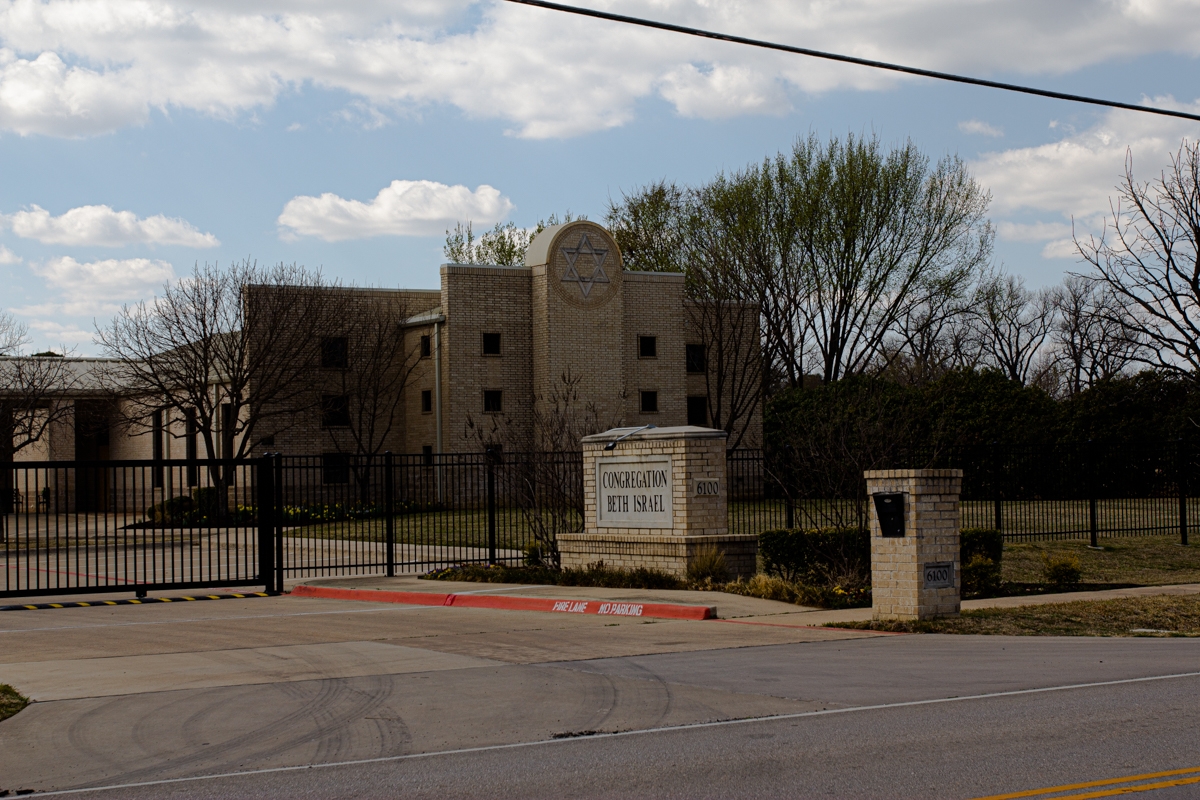
Interfaith activists in Colleyville, which is overwhelmingly comprised of Christians, said they want to set the record straight, referring to what they call the town’s mischaracterization in national press outlets. The scandals plaguing Dallas-Fort Worth have garnered media attention after the 2021 Capitol insurrection (which involved residents from DFW) and last year’s Critical Race Theory controversies at Colleyville public schools. Despite North Texas stereotypes, 21 religious community groups have been building interfaith bridges for four years under the umbrella of Peace Together, which was founded after racial and religious tensions unleashed at a 2017 “Unite the Right” rally in Charlottesville, N.C.
“We will have a safe, loving and committed community so we can go forward and not focus on the past,” said Rosenthal.
Having lived in DFW for 19 years, Rosenthal leads Peace Together and organized interfaith healing ceremonies after Jan. 15. Rosenthal was teary-eyed while recalling how interfaith leaders rushed in to help during and after the crisis.
As Rabbi Charlie Cytron-Walker of Congregation Beth Israel wrote in The New York Times:
“My congregation and I received an outpouring of love and support from strangers. If we begin with that love of the stranger, but offer it not in response to violence, but encouraged by empathy, we might just change our world.”
Everyone from Muslims to Catholics to Mormons stepped up. The Colleyville Texas Stake of The Church of Jesus Christ of Latter-day Saints, a member of Peace Together, has a deep respect for people who worship in different ways because Mormons have a history of persecution, said Leslie Horn, the Media Specialist at the church. Horn described Jan. 15 as a defining violation for her church. Still, the subsequent press coverage “missed a lot of the good,” she said.
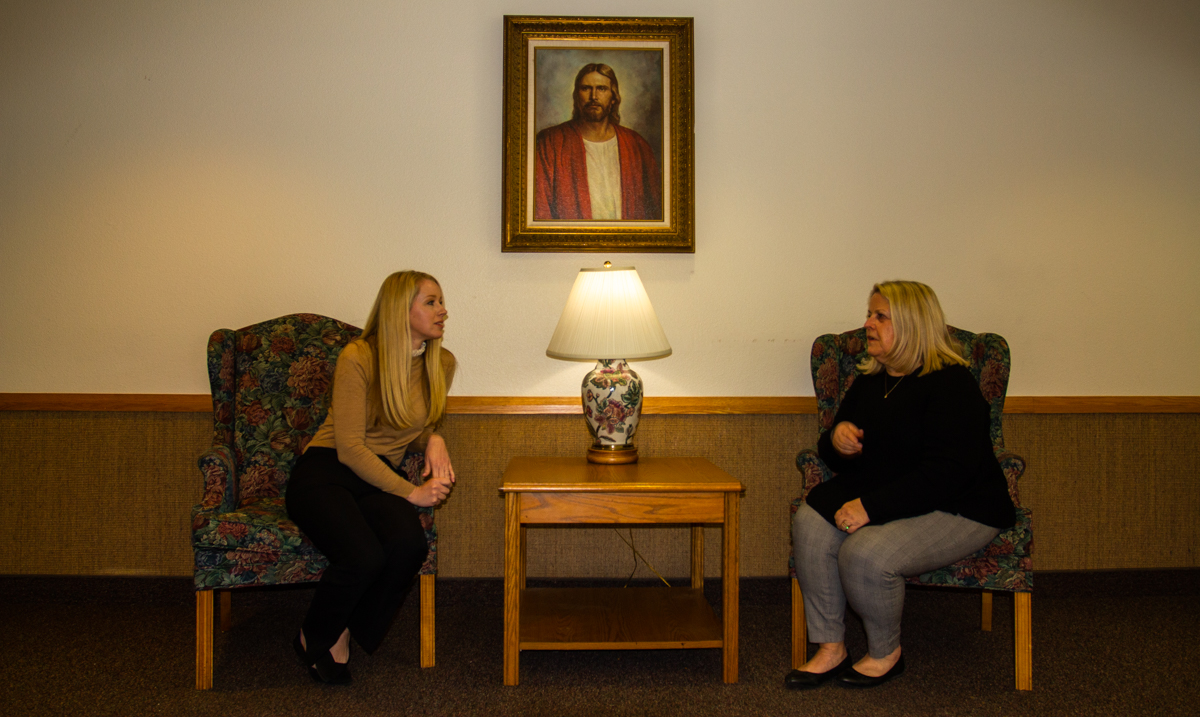
“In Texas, there tends to be this belief that we aren't diverse in thought, people and faiths,” Horn said. “But if you've spent any time living here, you quickly realize that’s not true. If you know anything about interfaith work, you know Colleyville is a leader.”
Horn said she could not fathom the juxtaposition of savagery in a sacred space. Horn, like so many religious observers in Colleyville, found herself in disbelief and kept asking herself, “Why Colleyville?”
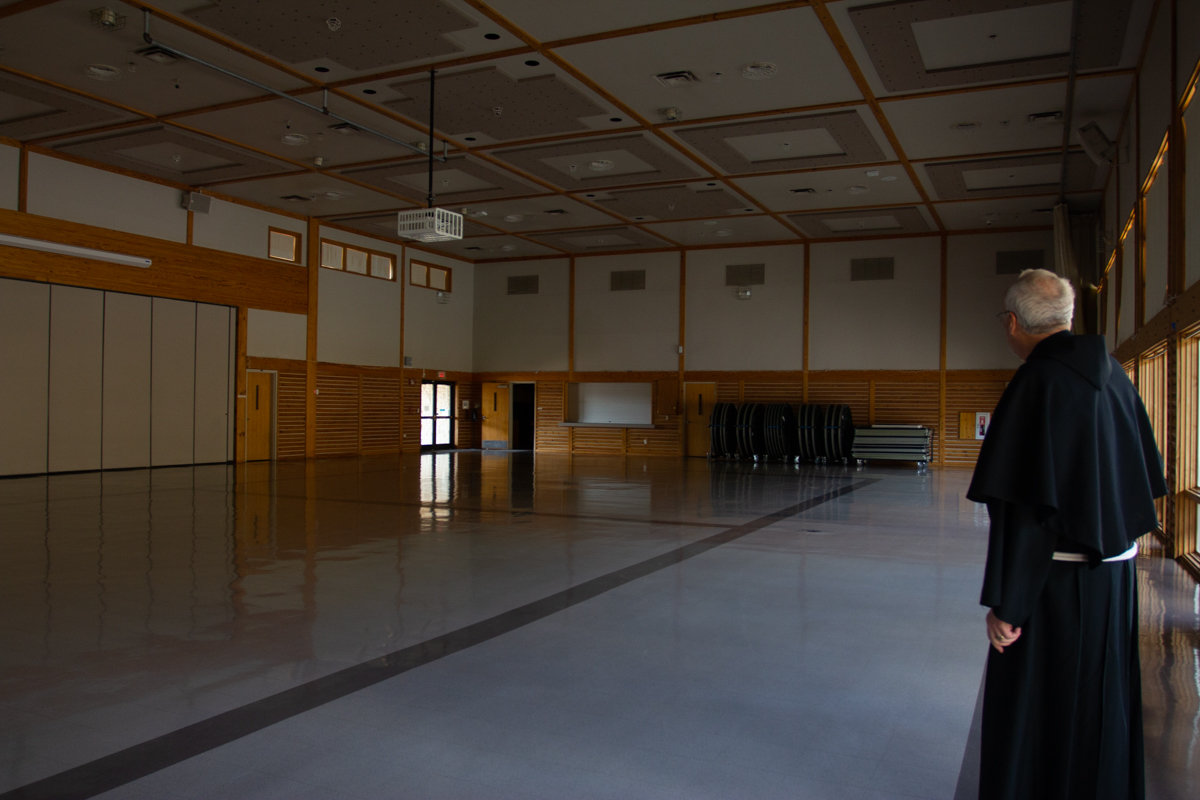
Rev. Michael Higgins, the senior priest at Good Shepherd Colleyville, shared Horn’s shock. Even though the standoff was “hectic and surreal,” Good Shepherd Colleyville jumped into action. For ten hours during the standoff, Higgins’ church, just one block away from the synagogue, hosted the press, the four spouses of the hostages and the local police. After the dust settled, Good Shepherd continues to seriously consider beefing up its security measures, said Higgins. Still, he refused to cancel Sunday services the next day, opting to pray for the town.
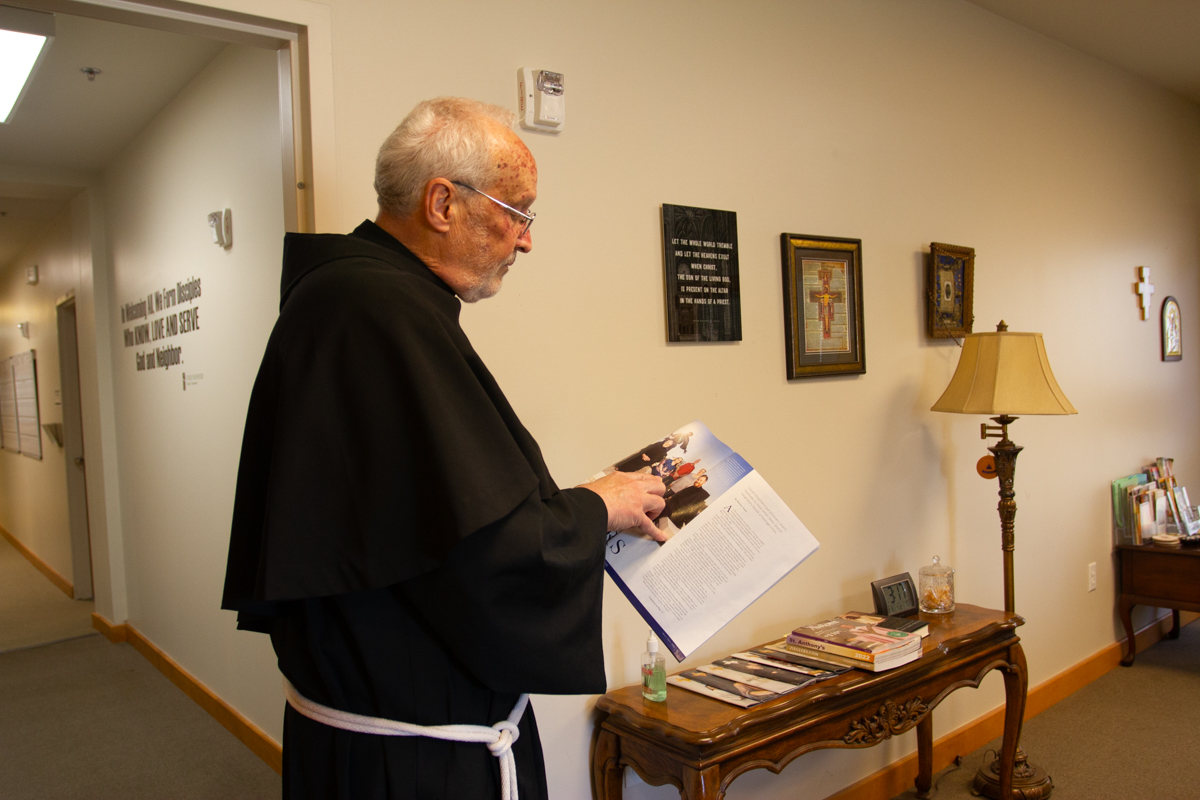
“Despite all the evidence to the contrary, God loves us,” Higgins said.
It is unfortunate that an event like this would be the catalyst for the country to be introduced to Colleyville. But January 15, Higgins said, was an immediate rallying of all faith traditions, which brought to light the reality of the tight community in Colleyville. Higgins has led the interfaith alliance in Colleyville since 2020.
“We were just trying to be of service,” Higgins said. “This shouldn't be special.”
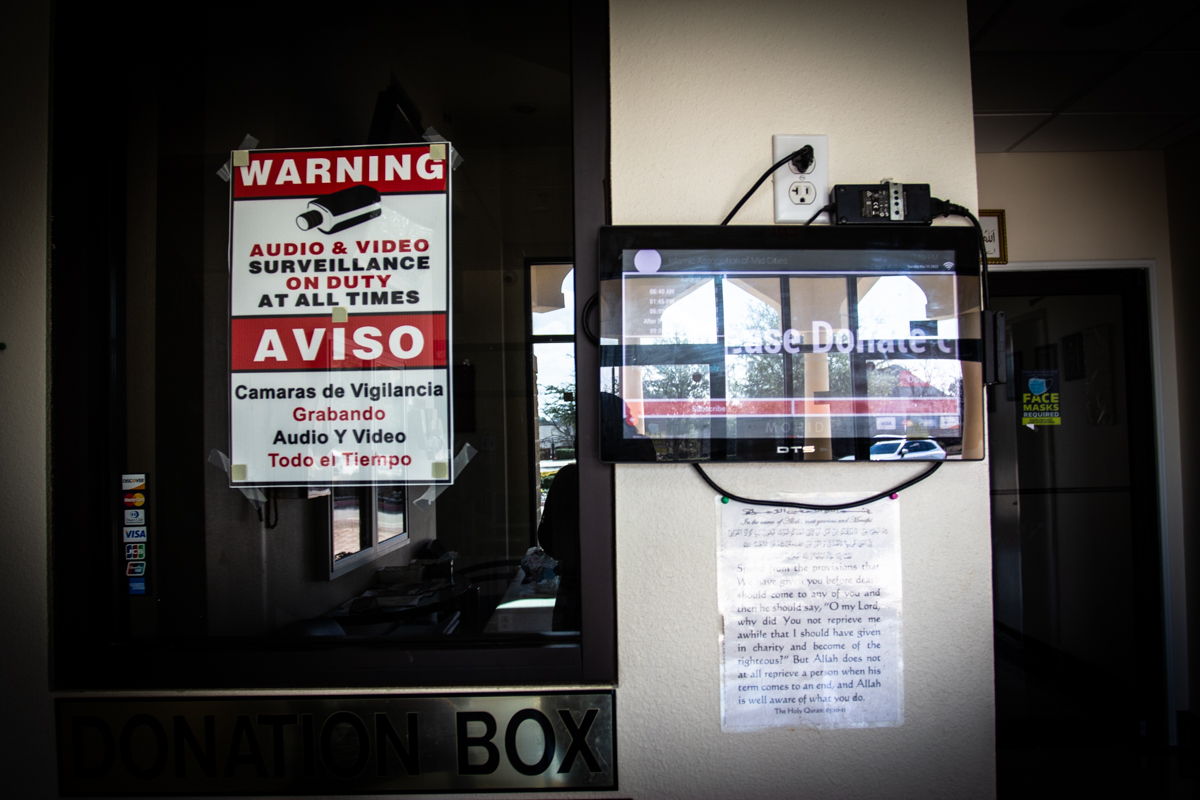
Abdul Rashid Khan, a founding member of Colleyville Masjid, said his house of worship is no stranger to the eerie sensation of looming danger. His gated mosque has had security since Sept. 11, 2001, and reactively increased its surveillance measures since Jan. 15. Khan, a friend to hostage Cytron-Walker and participant in interfaith meetings, said he could easily imagine a similar crime happening in his mosque. To cope and maintain hope, Khan has thrown himself into interfaith work.
“Our prophet Mohammed used to visit other religious spaces so that he could set an example of how his faith should be respected,” Khan said. “We follow that example.”
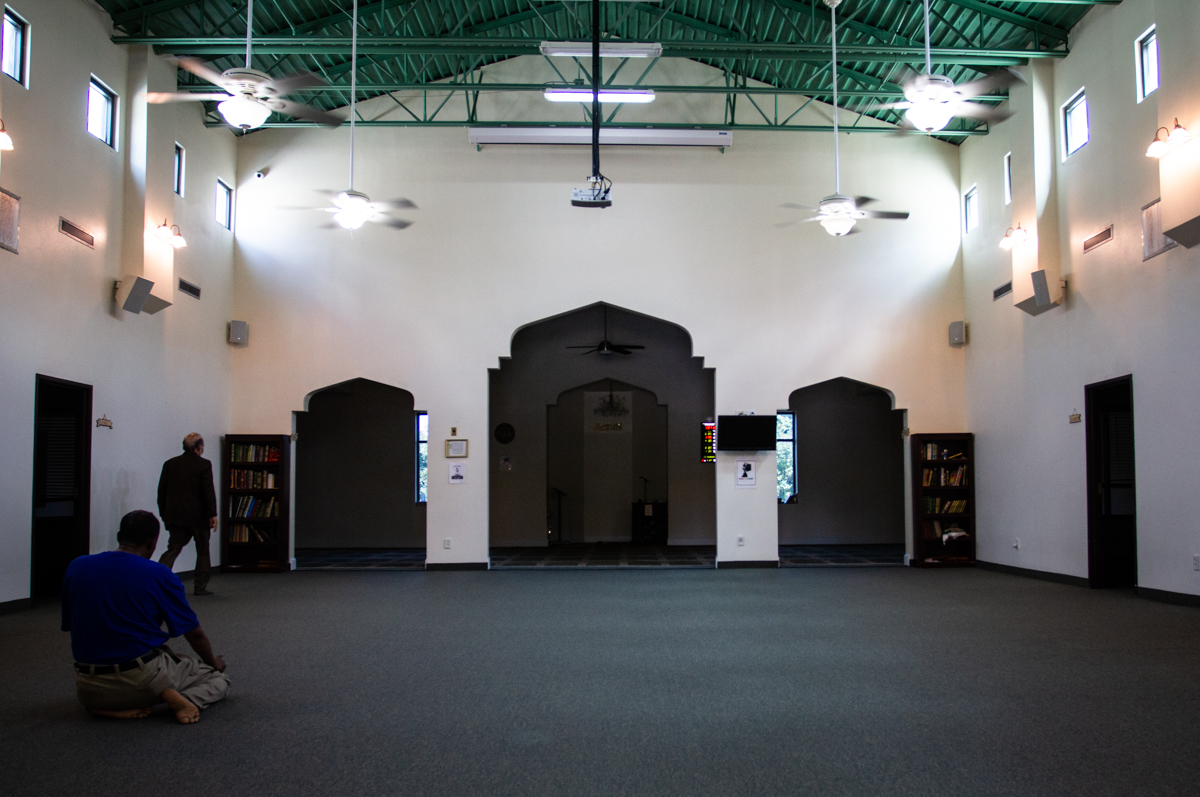
Katie Newkirk, a pastor at First United Methodist Church of Colleyville, reviewed her church’s safety policy after the “defining moment” of Jan. 15, installing new security systems and implementing training sessions for church staff. Still, she said Colleyville’s transformation in the past few months is twinged with optimism as local comradery has outshone religious differences.
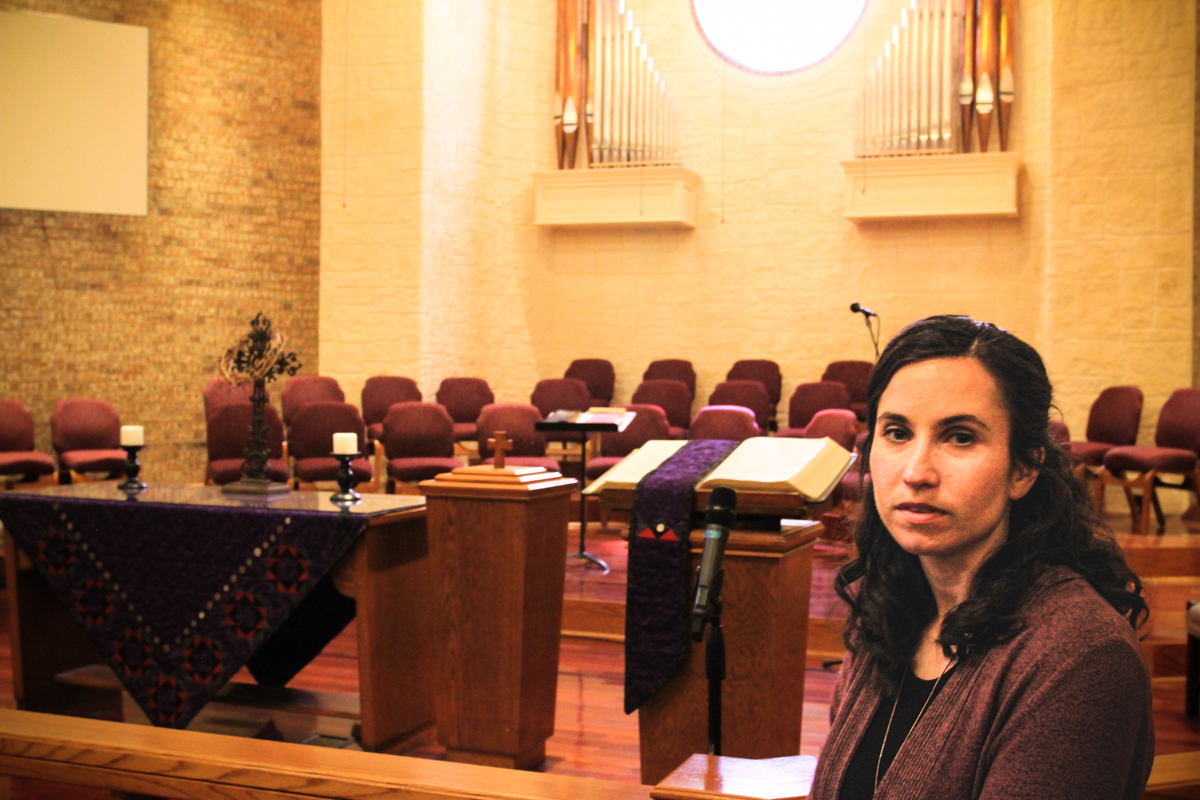
“It’s been a beautiful time to come together,” Newkirk said. “I don’t think God causes bad things to happen, but God brings good outcomes from messed up situations.”
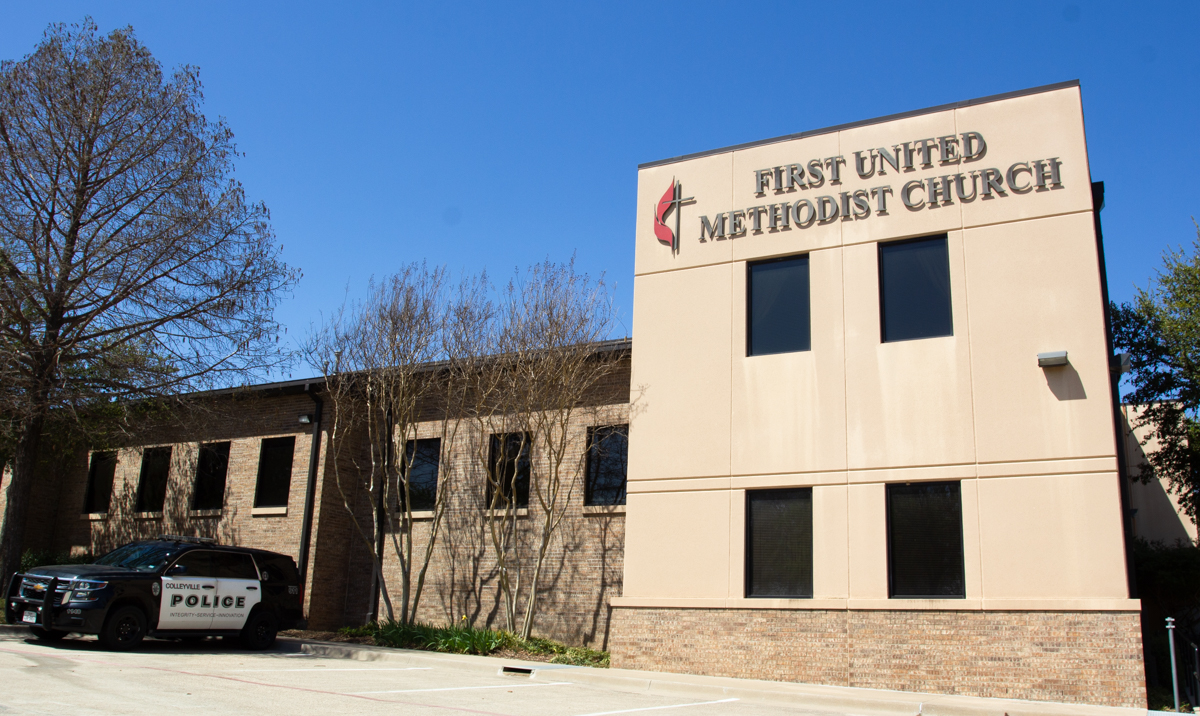
Of Prophets and Messengers
Of Prophets and Messengers
Neha Mehrotra | nm3148@columbia.edu
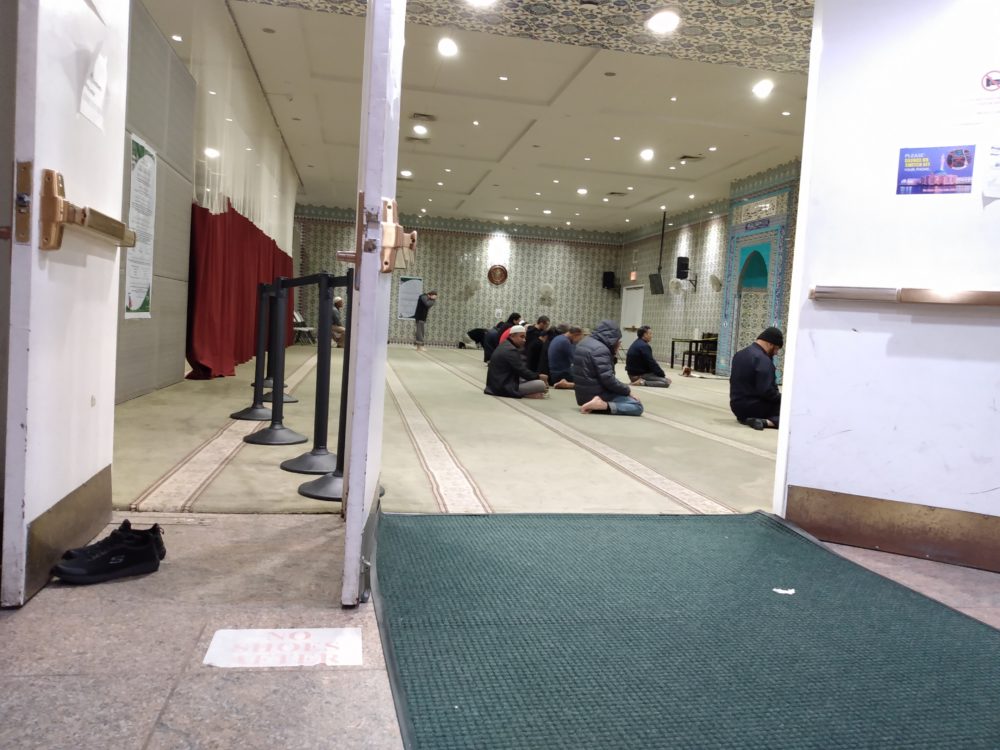
At times, the class at the Islamic Cultural Center of New York felt like elementary school. The imam would start off in a sing-song manner only to pause right before the end; at this point, he would linger expectantly, waiting for the congregants to finish his sentence.
“The relation between Abraham and Ismail is….” he would begin.
“Son,” the congregants would resound.
“From Ismail came the Muslims and from Jesus …?”
“Christians.”
The entire exchange is a tennis match, the ball being thrown to and fro, with participation from both sides. And though this equality ensures inclusivity, it also strikes one as infantilizing, transforming the imam into a paternal figure and the participants into children. Perhaps that is part of the appeal.
It is Saturday evening at the cultural center, located on Manhattan’s East Side, at 96th Street and Third Avenue. Between the Maghrib and Isha prayers, Imam Saad Jalloh leads the weekly teaching, known as Dars. Saturday’s Dars focuses on Fiqh, i.e., Islamic jurisprudence. Fiqh classes explore sharia, or divine law, as revealed in the Quran and Sunnah (teachings of Prophet Muhammad). Today, the emphasis is on Allah’s prophets and messengers: the difference between them, their rank and hierarchy relative to each other, the source of their knowledge, and finally, the teaching that they imparted.
A religious and cultural institution “serving the neighbouring Muslim community of Manhattan in particular and entire Muslim community of America in general,” the Islamic Cultural Center was established in the 1960s by Muslim ambassadors from Saudi Arabia, Libya and Malaysia among others. Jalloh, himself, comes from Sierra Leone. In today’s sermon, he starts off simple, highlighting the basic characteristics that comprise prophets and messengers. “Allah placed 120,000 prophets and messengers here on Earth. He made sure that they had the best message, best family lineage, made them very good looking, with the best characteristics and best behavior. They were the best among all human beings.”
During the sermon, the imam speaks in Arabic and then repeats his words in broken English. This seems catered to accommodate the diversity of Muslims who frequent the mosque: from lifetime New Yorkers, to migrants from the Middle East, to South Asian Muslims, all of whom pray side by side in this giant prayer hall. Not everyone, however, is afforded unbridled access to the entire space. In keeping with the rules in mosques all around the world, men and women sit, and pray, separately. During this sermon too, the imam and approximately 50 male congregants sit in the main prayer hall out front. Two women and I sit at the back, separated from the main hall by a thick curtain. We cannot see the imam, and we definitely cannot respond to the periodic questions he throws out to his audience.
The imam goes on to make a somewhat confusing comparison between messengers and prophets. “Messengers will come and spread God’s message. Prophets will revive this message. So every messenger is a prophet but every prophet is not a messenger,” he says. He doesn’t stop there. He explains that even within the ranks of the messengers and prophets, there are degrees of superiority. “Some are higher ranking than others. We prefer some messengers over others. We consider some better than others.”
However, as if catching himself in time, the imam continues: “But that doesn’t mean they are unequal. Regardless of rank, all prophets and messengers are commissioned by the same God with the same message. They worship the one God, Allah. All is One. The prophets may have different levels of expertise, different geographical spheres of influence, different miracles. But these are just different approaches that all converge into the same goal. All is One.”
Jalloh seems caught in a precarious balance: between the qualitative differences in the messengers of God, and the underlying unity of their message. He is effectively walking the tightrope between inequity and equality, trying to highlight one without letting go of the other.
He ends the sermon with something like a warning: “Prophethood is a blessing that Allah grants to whoever he wishes. It’s not something you can work hard at until you get it. No one can achieve prophethood by working hard. No one can reach prophethood by garnering knowledge. It’s all up to Allah. Prophethood is a direct appointment from Allah. He decides and he has the final say.”
Jalloh’s last words are decisive; not like his lingering half-sentences of earlier, where he waited for congregants to finish his thought. In this case, Imam Jalloh, like Allah, has the final say.

